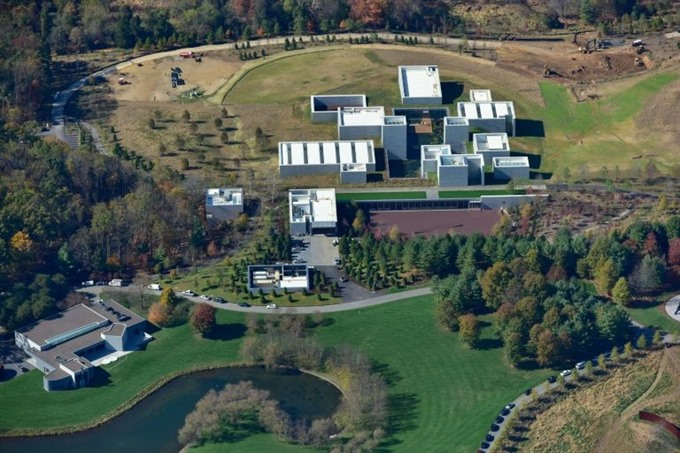 Life & Style
Life & Style

Glenstone, the museum of modern and contemporary art just outside Washington, announced on Monday a massive expansion set to open on October 4 that would make it one of America’s largest such private institutions.
 |
| Glenstone’s expansion would make it one of the biggest private art museums in the United States. — AFP Photo |
WASHINGTON — Glenstone, the museum of modern and contemporary art just outside Washington, announced on Monday a massive expansion set to open on October 4 that would make it one of America’s largest such private institutions.
Tucked away on more than 230 acres (93 hectares) of rolling meadows and woodlands in Potomac, Maryland, Glenstone first opened to the public in 2006 with funding from billionaire Mitch Rales and his wife Emily.
The former fox hunting estate’s natural setting is meant to encourage contemplation for visitors, who can marvel at the art and architecture for free.
Dubbed the Pavilions, the new 204,000-square-foot (18,950-square-meter) building designed by architecture firm Thomas Phifer and Partners features a ring of gallery rooms arranged around a large central water court.
An extra 100 acres of landscaping by PWP Landscape Architecture include two recently installed outdoor sculptures.
It’s a dramatic expansion from the original, 30,000-square-foot building that increases gallery space by nearly six times and can boost visitor capacity from 25,000 to 100,000 per year, though the number of daily visitors will be limited to ensure a more intimate experience with the art.
Nestled in the landscape, the Pavilions looks like a traditional hill town rising out of the earth.
"Throughout this transformation, we’ve maintained a single mission: to create a seamless integration of art, architecture and landscape and make it available free of charge to all who wish to visit," Glenstone founder Mitch Rales said in a statement.
Visitors can get a sneak peek at the ongoing construction in May - the exact opening date is unknown for now -- with a show featuring work by Paris-born French American artist Louise Bourgeois, known for her giant metal spiders that have spun their webs across the globe.
’Experience unlike any other’
That show will take place in the original building - the Gallery. The entire museum will be closed in September before the grand reopening the following month.
At the Pavilions, 13 different spaces will present works from the Rales collection. While some of the rooms will show single-artist installations, others will include temporary exhibitions of pieces by various artists.
Among those set to participate in the inaugural installations are Bourgeois, Michael Heizer, Roni Horn, On Kawara, Brice Marden, Lygia Pape, Martin Puryear and Charles Ray.
Most of the work was created after World War II and spans a wide range of media, from paintings and photographic prints to sculptures and installations.
"We’ve worked carefully to create a visitor experience unlike any other, providing each visitor with an unhurried, contemplative engagement with the artworks," said Emily Wei Rales, the museum’s co-founder and director. — AFP



.jpg)
